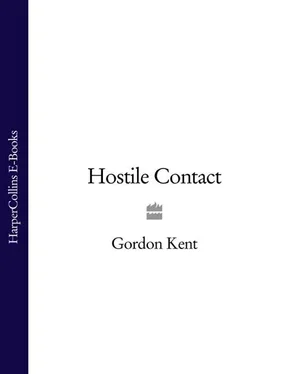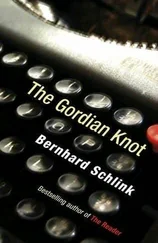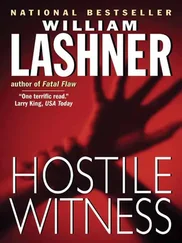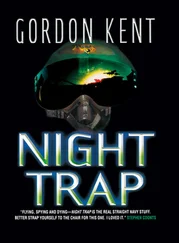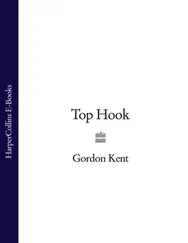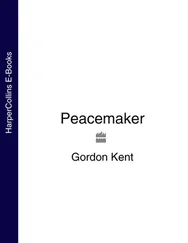For George.
No reason to bring his Chinese loyalty into it.
Filomeno Hamanasatra was an aged Chinese agent who had no duties any more except to monitor three out-of-date, probably dead, communications sites. He walked his dog past them, proudly, even defiantly, because most of his neighbors were Muslims and had little regard for dogs. Mister Hamanasatra was a Christian—well, nominally a Christian, certainly culturally a Christian, inwardly somewhat contemptuous of belief itself—but he loved the presence of the animal and never stopped wondering at the mystery of communication, even affection, between the two different species, his and the animal’s. The dog was a cairn terrier, the only one in Jakarta, and, although it suffered from the heat, he walked it every afternoon and then returned it to the air-conditioned coolness of his flat.
Once a week, Mister Hamanasatra walked the cairn to Fatahillah Square. Faithful in his duty, he glanced each time at the wheels of Si Jagur, admiring when he could the women congregated there, and then, seeing nothing on the wheels, moving on.
Today, however, as he glanced at a lovely woman who was probably barely in her teens, and, because he never stopped walking but kept moving so that nobody would think his visit unusual, he was almost past the great gun before he looked down again at it and saw that a mark had been made on a wheel with white chalk. And, yes, the mark looked like a letter Q with an extra bar through the pig’s tail that curled down to the right.
Remarkable!
Mister Hamanasatra’s aging heart beat a good deal faster. He had seen a mark on the wheel only three times in all the years he had been paid to watch it. He was a romantic: he made up scenarios, stories, of what messages, what events, that mark symbolized. Now, he was so excited that he walked faster, almost dragging the dog, and it balked, sat, scratched, looked at him accusingly.
“Well, well,” Mister Hamanasatra said. He scratched the terrier’s ears. He walked more slowly to the far side of the square and then, because he wanted to “make assurance double sure” ( Macbeth , a particular favorite), he walked the dog back past Si Jagur and the women and checked again to make sure, double sure, that the mark was there and that it was really the correct mark and not something a child had done at play.
Then he walked home through the deafening traffic noise and, safe inside his flat, he called a number on his cell phone and said that Vidia had a message from Lakme. Had they got that? Yes, they had.
That was all he did. A widower, retired, he had little else to do, but at least, that evening, he could stare out a window with the dog in his lap and dream of where his message was going and what it meant.
“Shit!” Jerry Piat said.
He had just heard from Bobby Li that the mark was on the cannon in Fatahillah Square.
That raging prick Ray Suter had been right—Dukas had glommed on to the comm plan first crack out of the box, and here the bastard was, making the mark and no doubt all bright-eyed and bushy-tailed, ready to hit the Orchid House tomorrow morning so he could enjoy a day at Uncle’s expense in Jakarta.
Jerry knew that Dukas would believe that the comm plan was dead. In that situation, you left the mark, you made the meeting site faithfully for a couple of days, and, when nobody showed, you went home and checked the box marked “Deceased.”
Well, surprise, surprise, Dukas!
Jerry was still sober because it was only late afternoon. Now he wouldn’t take a drink until it was all over. He began to strip and change into running clothes—a good run, sweat, exertion to work the alcohol poisons out of the muscles, and he’d be ready to go.
Nonetheless, he wished he’d done a dry run with Bobby’s team.
The road to hell is paved with good intentions.
NCIS HQ, Washington Navy Yard.
Mike Dukas had talked to Triffler, who was in Manila waiting for an aircraft to get a hydraulic leak fixed to get him to Jakarta. It was plain that he wouldn’t get there in time for the first window for the meeting in Jakarta, and Dukas didn’t like it. He wanted Triffler with Alan to calm him down, even though nothing was going to happen, nothing could happen, and the comm plan was strictly what scientists called a chemical stomach.
Dukas sat in his office, one hand on the telephone, wondering if he should call Alan at his hotel. Bad move—insecure phone. Around him, on every flat surface—chairs, desk, file cabinets, computer—were folders from the Sleeping Dog case file. Two days into them, Dukas was bewildered by technical radio jargon and bored by old reports about the futility of an investigation that had gone nowhere. He had read nothing that caused him to worry about Al Craik in Jakarta, and yet—
He took his hand off the telephone and glanced at his watch. Ten-thirty-seven a.m. Meaning that it was ten-thirty-seven p.m. in Jakarta. If Alan had any sense, he had waited for Triffler to arrive before he left the mark on the cannon. Alan had good sense, Dukas knew, lots of good sense—but not always when it came to action. So maybe he had already left the mark, and the clock would start ticking, and tomorrow morning—tonight in Washington—he’d make his first trip to the Orchid House.
And nothing would happen.
Would it?
Dukas told himself that he was suffering case-officer jitters. You sent somebody out, he fell off the face of the earth as far as you were concerned, of course you questioned what you were doing. Imagined worst-case scenarios. So what was the worst case here? Dukas frowned. What could possibly be the worst case with an old comm plan that had been unused for seven years? Your man walked into the Orchid House and—
Dukas picked up a folder and got ready to read. He even took out the reading glasses they’d given him at his last physical and that he never used, except that now he was reading all day, day after day, and his eyes felt like hot bullets that had been superglued into their sockets. He started to read about alternative explanations for radio bursts that NSA thought they had detected in western Canada. The prose made him groan. Solar flares! Shifting magnetic fields!
Dukas stared at the telephone. Something was bugging him, and he knew that the something was partly Alan’s mission in Jakarta, but only partly; some of it was this goddamned case itself.
“It smells,” he said out loud. The smell wasn’t strong, and it wasn’t bad, but it was there. Dukas actually put his nose down and sniffed the pages in front of him. The odor was slightly musty, slightly dry and woody. Papery. Dukas thought of some storage site in Maryland or Virginia, somewhere secure but unknown to most people at Langley, a dead end for old Agency folders.
He got up and walked along the corridor and swung into another office, one hand low on the doorway to support himself without stressing his injury. “Hey, Brackman,” he said.
“Yoh.” An overweight black man was tapping a computer keyboard. He didn’t look away from the screen.
“How long has the CIA been using computers?”
“Long time, some of them; no time, a lot of them. Computer illiterates, lot of them.”
“They still doing files on paper in, say, ninety-seven?”
Brackman turned away from the screen and focused on a half-eaten Devil Dog. “Some of the holdouts, sure.” He ate the Devil Dog. “Very conservative place.”
Dukas walked back to his office, poured himself coffee from Triffler’s machine, and sat on his desk, one hand on the telephone and a look on his face as if some source of deep dissatisfaction had been tapped. He fiddled his fingers on the telephone. He chewed his upper lip with his lower teeth. He made a sound with his tongue and the roof of his mouth, Tt-Tt-Tt. He picked up the phone and hit a button and said, “Find out how I get a Nav pilot who’s flying out of Pax River. Call me back.”
Читать дальше
